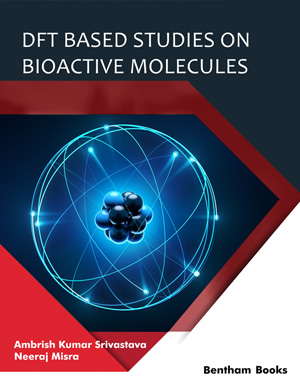Abstract
Background: The Computer-Aided Drug Discovery (CADD) approach was used to develop a few Epidermal Growth Factor Receptor (EGFR) kinase inhibitors. EGFR kinase expression is highly associated with genomic instability, higher proliferation, lower hormone receptor levels, and HER2 over-expression. It is more common in breast cancer. Thus, EGFR Kinase is one of the main targets in discovering new cancer medicine.
Objective: To computationally validate some amides substituted β-amino enones as EGFR inhibitors and to carry out associated in vitro anticancer agents.
Methods: We used tools such as molecular docking, MD simulations, DFT calculations, and ADMET predictions in silico to establish a preliminary SAR. In vitro, we used BT474 (ER+HER2+) and MCF-7 (ER-HER2) cell lines along with normal breast cell epithelial cells (MFC-10a) for anticancer studies and EGFR kinase inhibition assay studies. As the Reactive Oxygen Species (ROS) plays the main role in cancer development, we also analyzed the antioxidant potentials of these compounds.
Results: Among the family of eleven amides substituted (Z)-β-amino enones (5a-k), compounds 5b, 5c, 5g, and 5h showed valuable in silico and in vitro bio-activity. Remarkably, the in-silico results almost coincided with in vitro study results.
Conclusion: We recommend compounds 5b, 5c, 5g, and 5h for pre-clinical and clinical evaluation to establish them as future cancer therapeutics.











